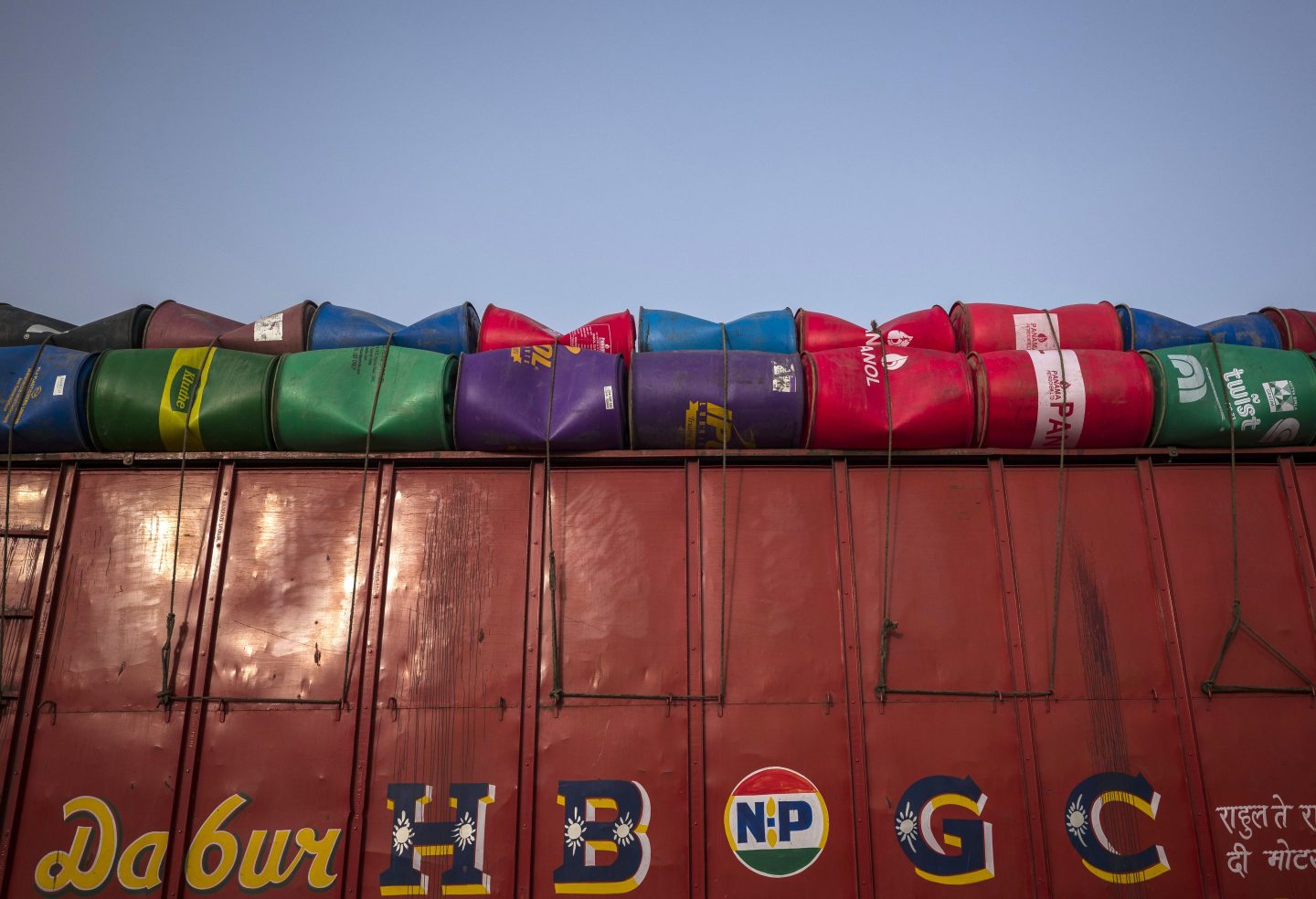Good morning, Peter Vanham here in Geneva, filling in for Alan.
Looking a year out, economists don’t just expect “higher for longer” interest rates; that phrase also applies to oil prices, which are predicted to edge up to around $100 per barrel into next summer.
If oil hits that mark, it largely will be due to two factors, Daan Struyven, head of oil research at Goldman Sachs told me this week: a Saudi-led OPEC+ decision to limit supply, and a China- and emerging markets-led increase in demand. Neither of those two factors is likely to abate soon.
On the supply side, Saudi Arabia and other OPEC+ economies need a high enough price for long enough to maximize their short-term profits and diversify their economies away from oil. For Saudi, the diversification drive is already apparent in the inroads it’s making in global sports, its positioning as a tourism hub, and its attempt to reinvent cities in projects such as Neom.
But neither Saudi nor other OPEC members can readily afford to lose their energy sector entirely, even if the end of oil lies in the distant future. Instead, some are positioning themselves to become major players in renewable energy and carbon capture and storage. But pulling off this transition requires major investments, and high oil prices will help guarantee an orderly transition.
On the other side, China and emerging markets like India will continue to demand oil as they grow. China’s current economic weakness, Struyven pointed out, is in non-oil dependent sectors such as real estate and exports. Even at a 4-5% growth rate, which is now expected for 2023 and 2024, China will continue to put an upward pressure on oil prices.
Add to that the bumper growth in India—hovering between 6% and 7% this year and next and contributing up to 15% of global growth—and you have the ingredients for high energy prices globally, no matter what happens in the U.S. or other advanced economies.
More news below.
Peter Vanham
peter.vanham@fortune.com
@petervanham
TOP NEWS
Investing in Detroit
JPMorgan’s investment of $200 million into Detroit is helping the city recover from its economic woes. The bank, an honoree on this year’s Change the World list, partnered with local organizations to revive real estate and small businesses in the city. “Can we, in the next five or 10 years, become a Midwest center for startups? That’s gonna be exciting,” Detroit Mayor Mike Duggan says. Fortune
A different kind of TikTok ban
Indonesia abruptly banned users from buying and selling goods on social media platforms like TikTok and Facebook. President Joko Widodo blamed online shopping for an influx of cheap foreign-made goods driving smaller local firms out of business. The decision is a blow to TikTok owner ByteDance, which is investing billions into building out its TikTok Shopping platform in Southeast Asia. CNBC
Better IPO before Friday
Companies still waiting to list on U.S. exchanges should make sure they debut before Friday, Gary Gensler, chair of U.S. Securities and Exchange Commission, warned on Wednesday. Gensler said a government shutdown will lower the agency’s staffing to “skeletal” levels—and companies waiting to list may be stuck “in a sort of subliminal state where they can't access the markets." Government spending is set to expire on Oct. 1. Reuters
AROUND THE WATERCOOLER
She was overwhelmed with loneliness after losing her husband of 65 years. Then a robot companion changed her life by Erika Fry
Free speech, AI, and college rankings: Addressing challenges ahead at Vanderbilt University by Preston Fore
Commentary: The U.S. economy has always shrugged off government shutdowns–but that might stop being the case if they become the new normal in Congress by Richard Vague
Amazon’s return to office rule could take 3 years to become a reality, says senior exec: ‘It hasn’t been perfect.’ by Eleanor Pringle
This edition of CEO Daily was curated by Nicholas Gordon.
This is the web version of CEO Daily, a newsletter of must-read insights from Fortune CEO Alan Murray. Sign up to get it delivered free to your inbox.













